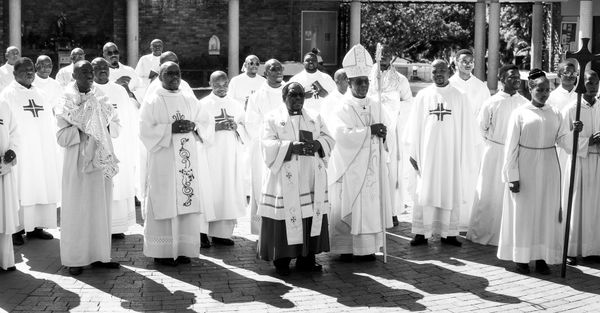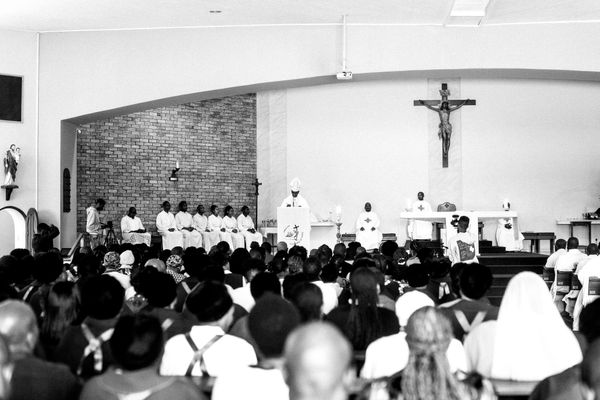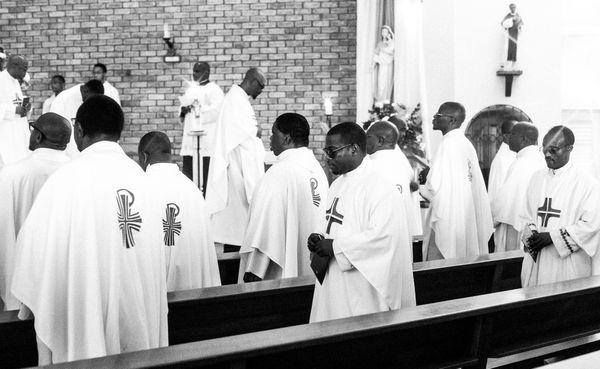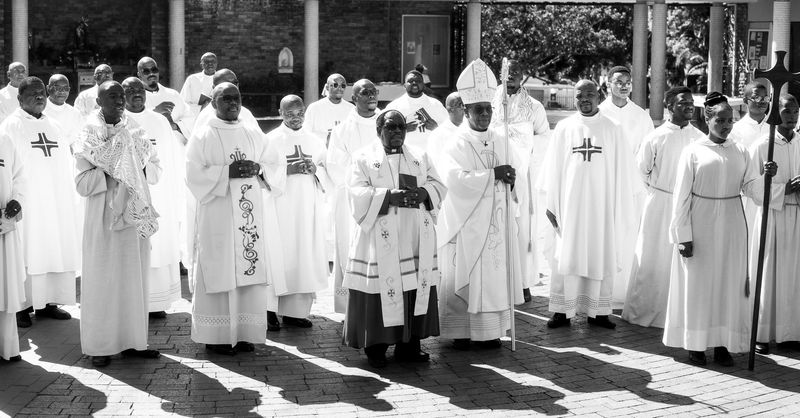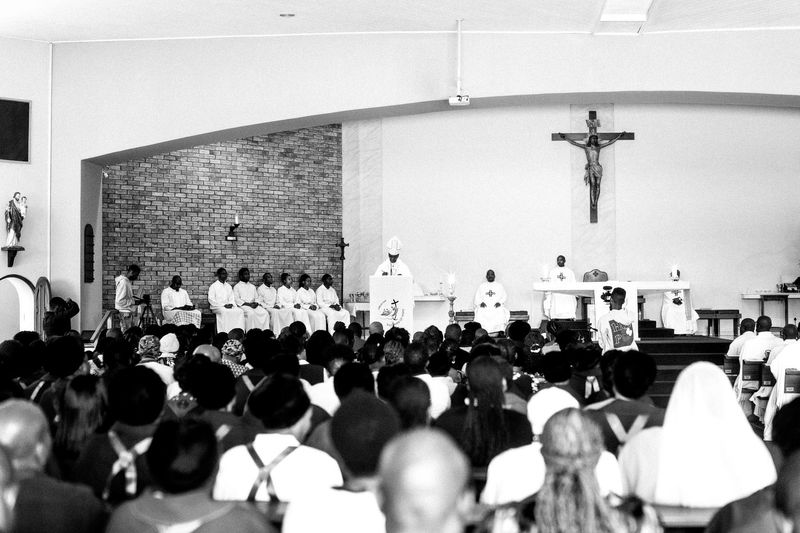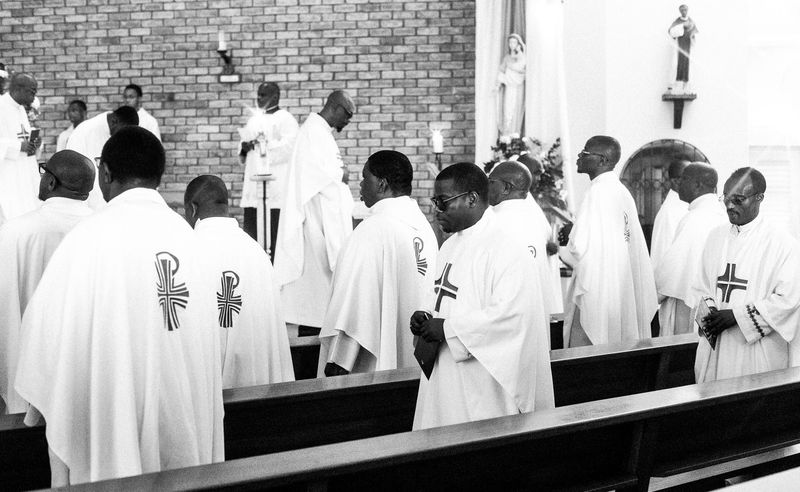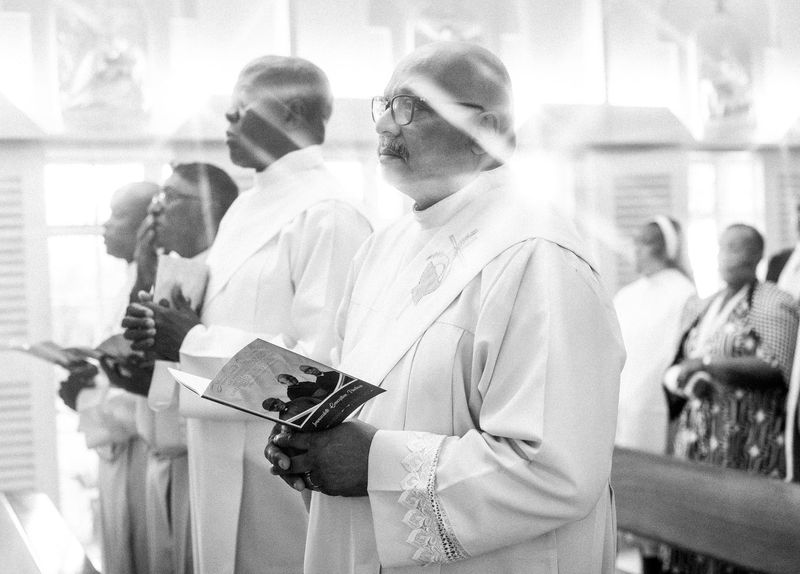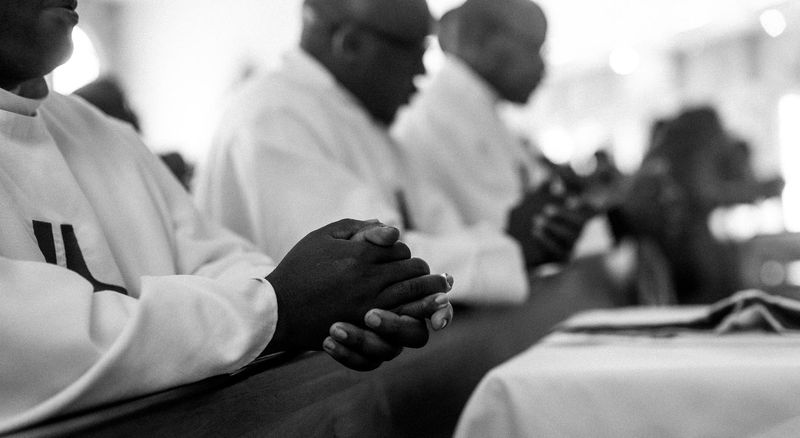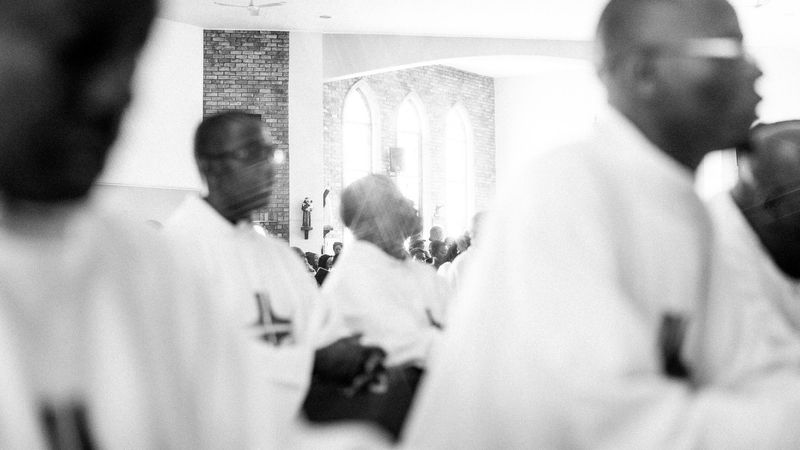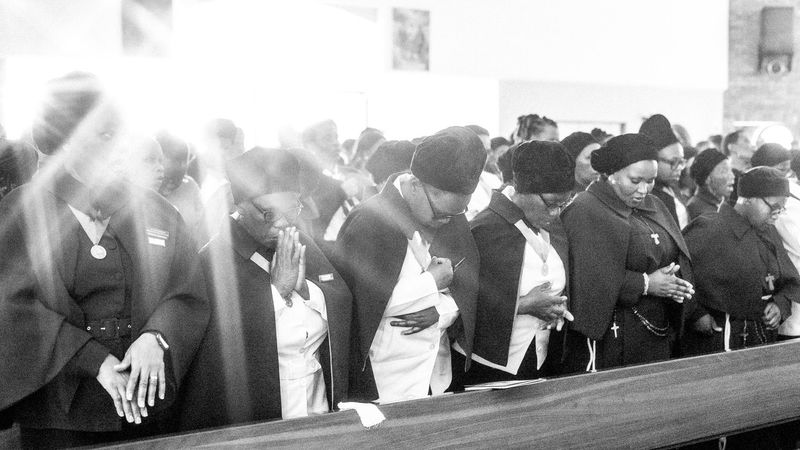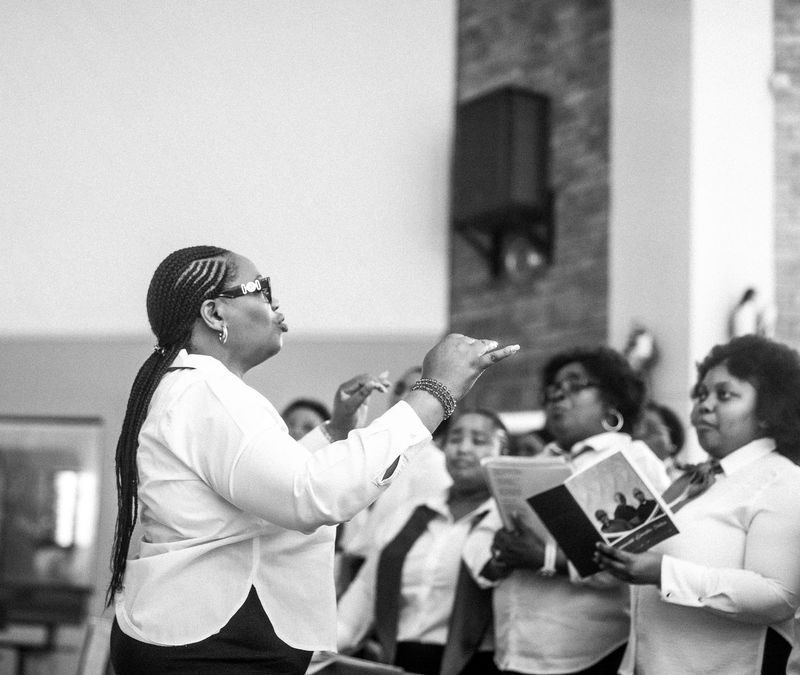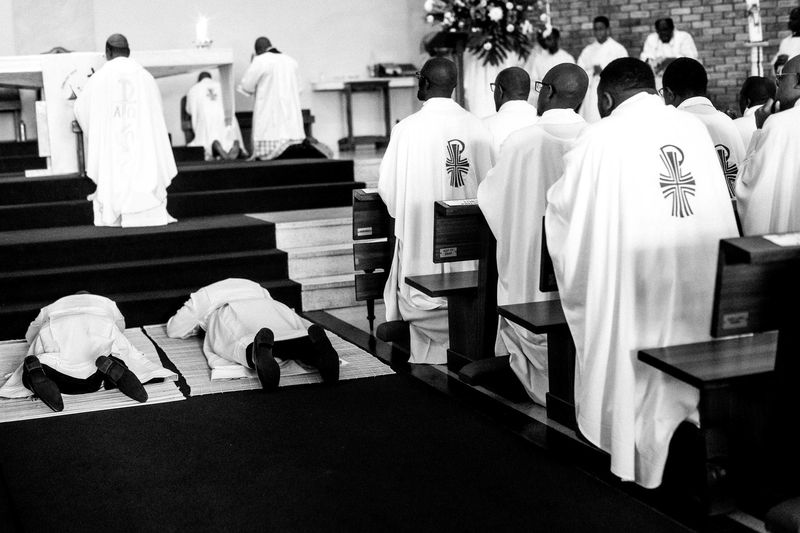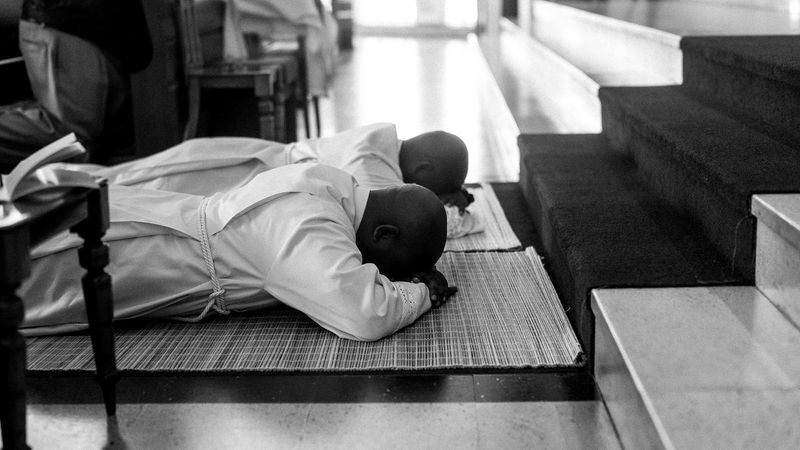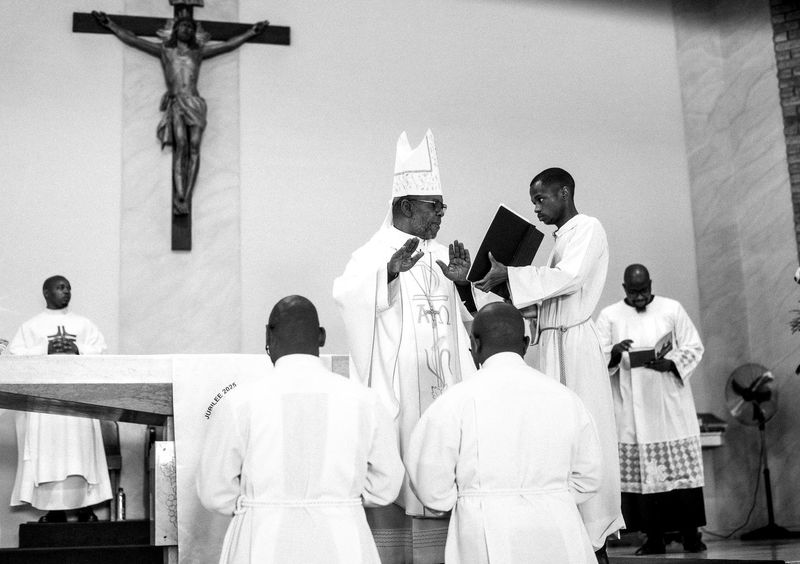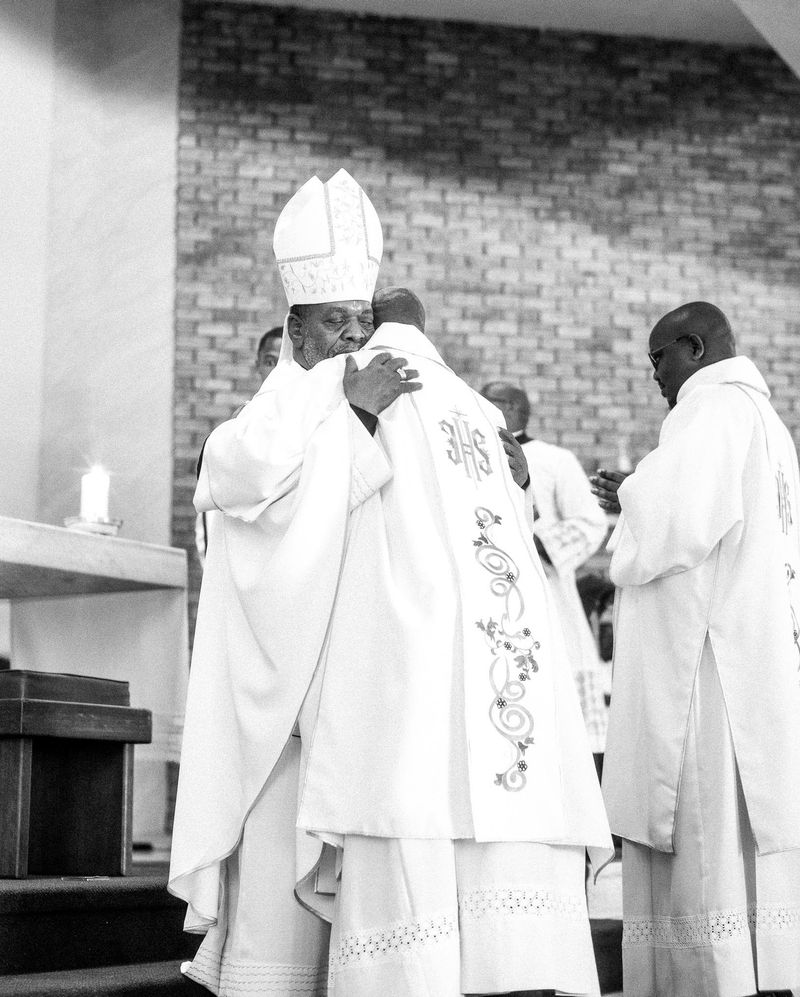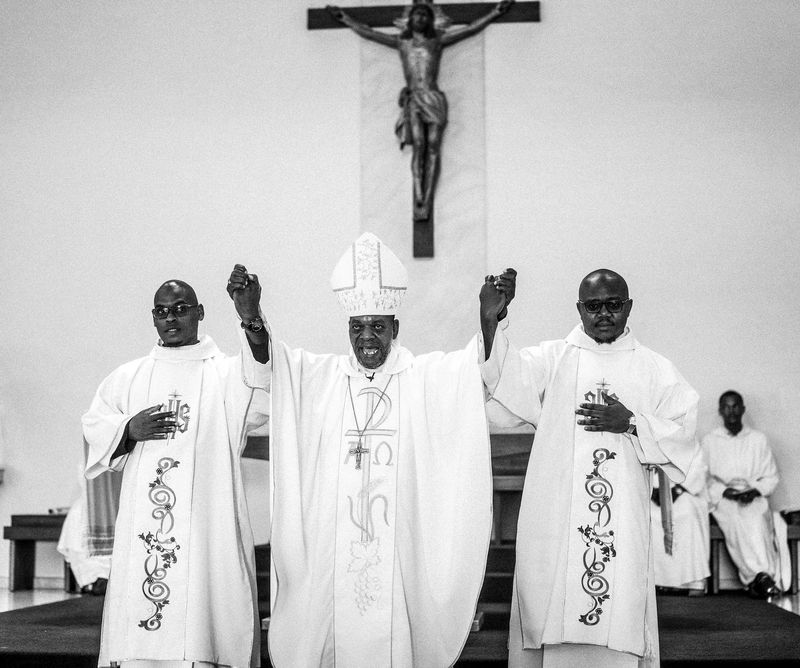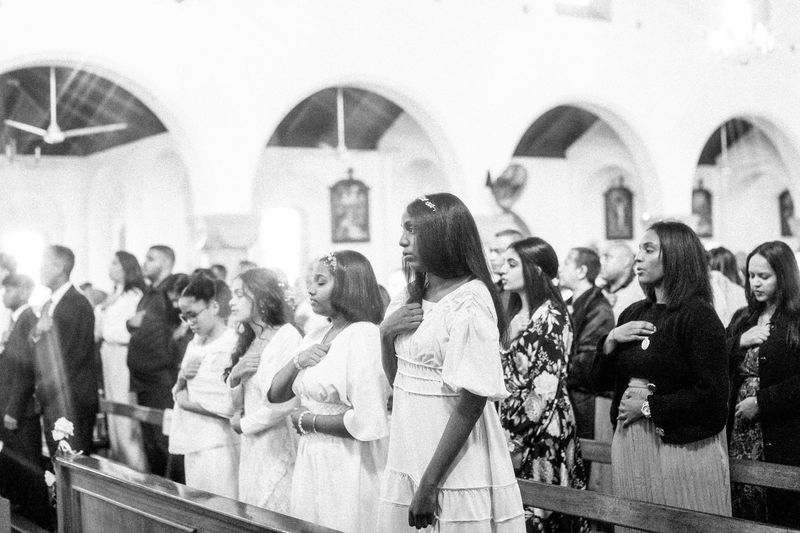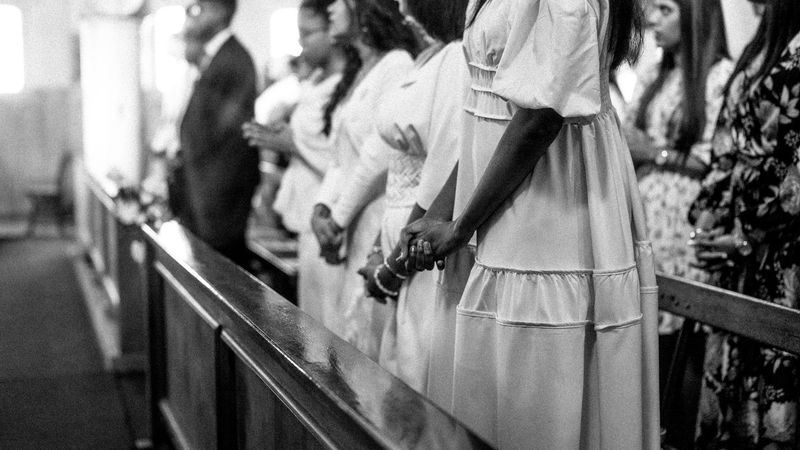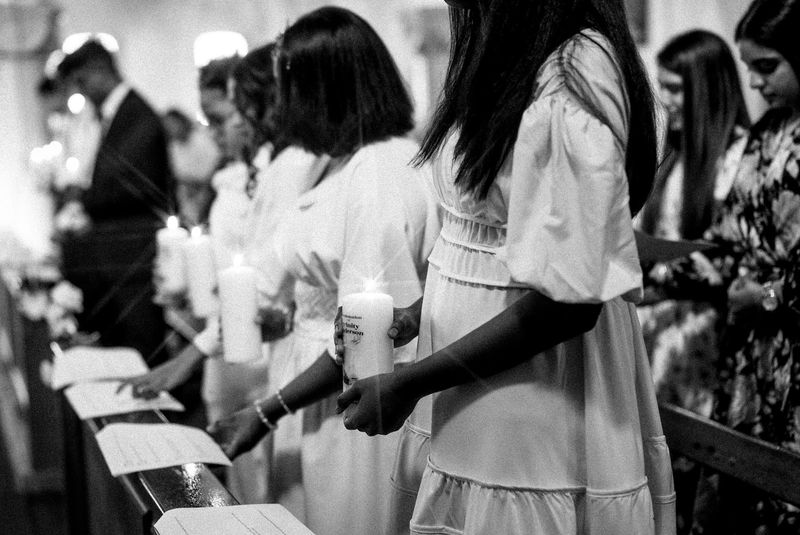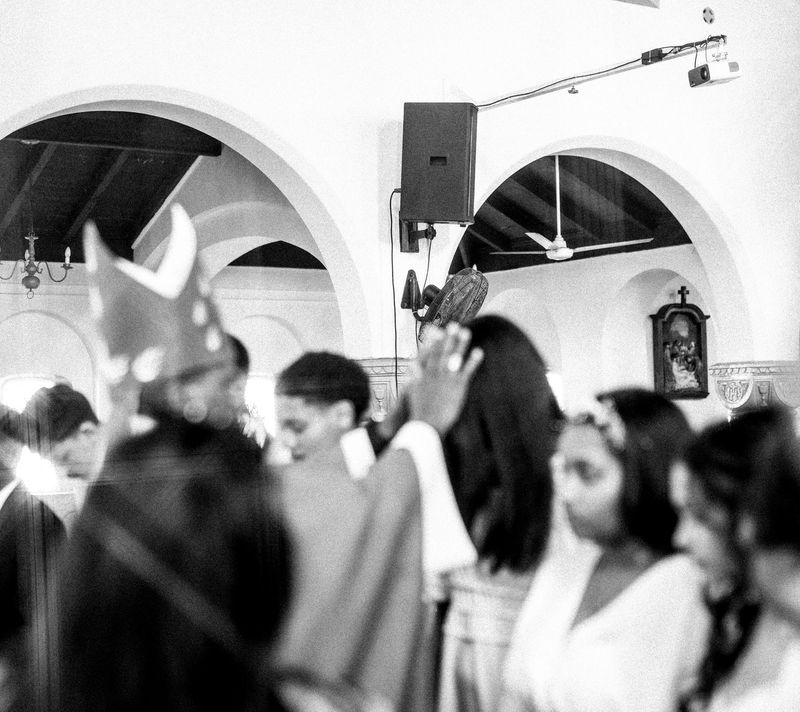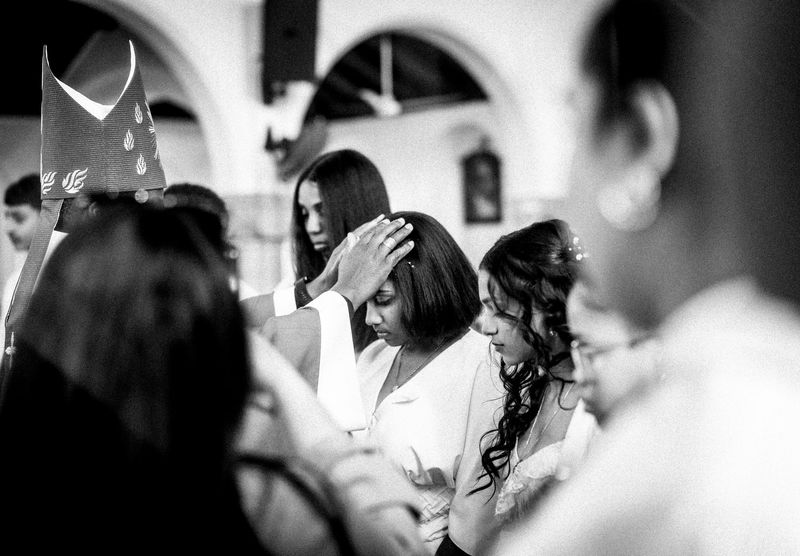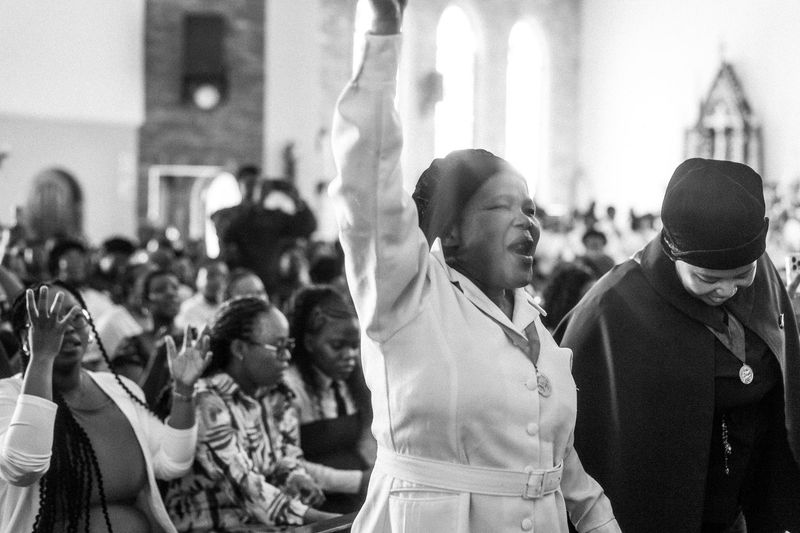Black Church
-
Dates2025 - Ongoing
-
Author
A documentary project on my family’s Catholic faith in KwaZulu-Natal, focusing on intimate milestones: an ordination and my sister Tayla’s confirmation. All images made in 2025.
I was raised in the Catholic Church, but I no longer practice. My family, however, remains deeply committed, and whenever I return home to KwaZulu-Natal there is almost always a religious celebration. Since 2020, I have been documenting these rituals, initially as a way of witnessing but increasingly as a dedicated project. I see the beauty in what my family loves, in the community that gathers around them, and in the church that my grandmother cherished.
This project focuses on two milestones: the ordination of Brother Ngobese and Brother Gila as Deacons in Durban, and my sister Tayla’s Confirmation. These moments represent both communal and personal expressions of faith, offering two distinct but connected perspectives on Catholicism in South Africa.
Ordination is the process through which men become deacons, priests, or bishops, committing their lives to service in the church. The ordination I attended was the first in my life, and the solemnity of the ritual moved me—the years of study, the devotion of the participants, and the gravity of the occasion. The Deacons lay prostrate not on marble floors, but on a Zulu straw mat known as icansi. The Mass unfolded in Zulu, English, and Latin, creating a sonic tapestry of colonial inheritance and indigenous continuity. In these details, Catholicism appears not as a static tradition, but as something reshaped and localized, layered into African life.
By contrast, Tayla’s Confirmation offered a more intimate lens. Confirmation is a sacrament marking the strengthening of faith and a young person’s deeper initiation into the Catholic community. I have been documenting Tayla since childhood as part of my broader exploration of girlhood and womanhood. My relationship with women has always been layered—curious, sometimes tense, but deeply appreciative of womanhood’s complexities. Tayla’s Confirmation marked a stage in her development, an important rite of passage that reflects both tradition and her personal journey. In the Catholic Church, the emphasis on purity and virtue stands in stark contrast to contemporary society, and I am fascinated by how young women like Tayla navigate these contradictions.
While I position myself primarily as an observer, I am often awed by the gatherings, by the devotion, and by the sense of community that these rituals create. My role is not to critique or to advocate, but to bear witness, to record how faith, memory, and identity take form in lived experience.
With the support of the PhMuseum Women Photographers Grant, I would expand this series by creating portraits of bishops and priests, exploring the fashion and vestments that give Catholicism its visual richness, documenting the lives of nuns, and recording other rituals that make Catholicism in South Africa distinct.
Ultimately, I envision presenting this project as both exhibitions and a photobook—a body of work that is personal yet universal, intimate yet expansive, and deeply rooted in the cultural life of my family and community.
